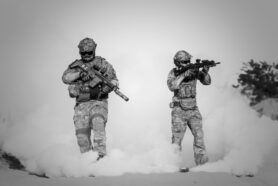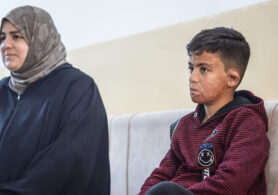The term ‘blowback’ was originally invented by the CIA in the 1950s to describe “to the unintended consequences of policies that were kept secret from the American people” (Johnson, 2000, p. 8). Chalmers Johnson in his book Blowback. The Costs and Consequences of an American Empire was one of the first to research blowback effects from U.S.’ foreign policy operations. Examples of unintended consequences from covert policies are retaliation attacks directed at civilians or military personnel, the erosion of international law, the destruction of politician’s credibility, or the destruction of alliances. Moreover, Johnson argues that the meaning of blowback should be widened as to encompass unintended negative consequences for the population on the receiving end as well. Despite being coined in the United States, blowback is not limited to unintended consequences from U.S. policies. Several authors have taken up the term blowback and applied it to the methods applied in the ‘global war on terror.’
Source:
Johnson, C. (2001). Blowback : the costs and consequences of American empire. New York: Henry Holt.



